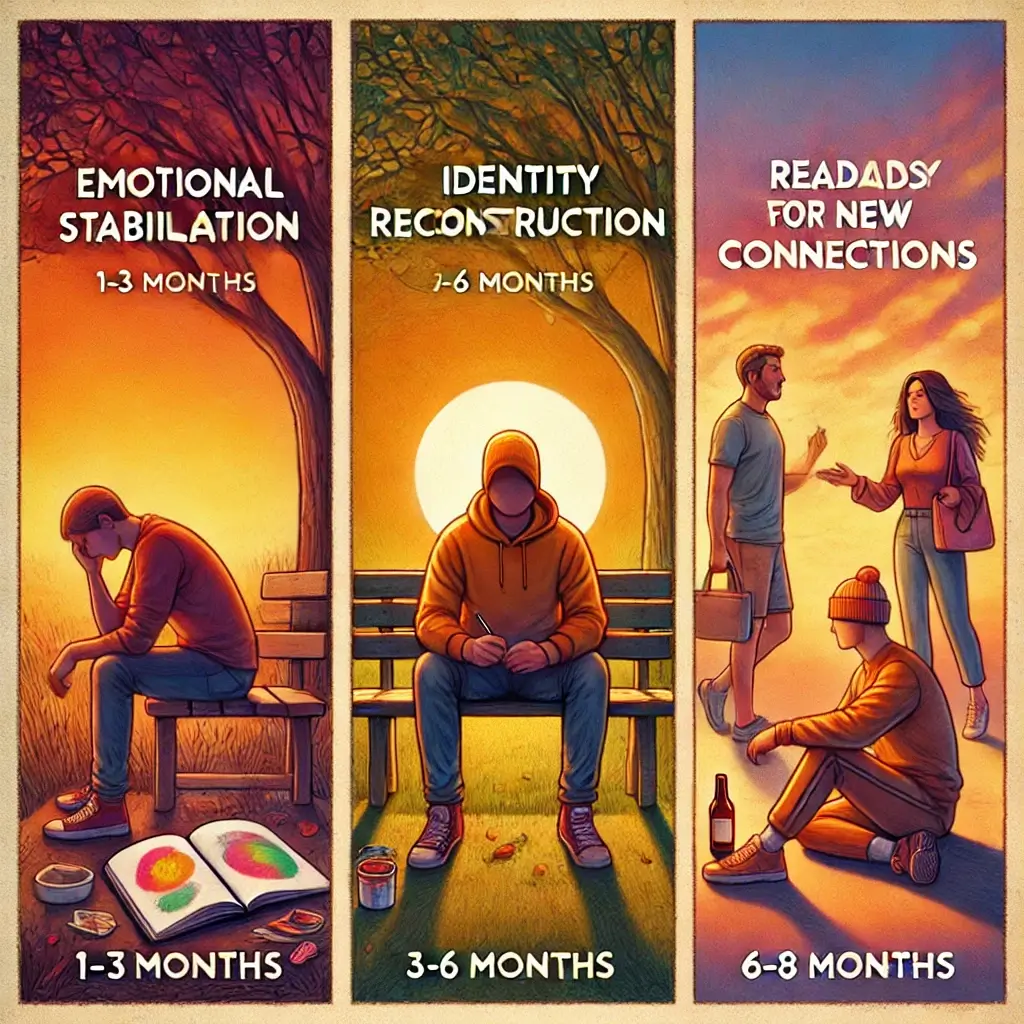The Personal Journey of Breakup Recovery
Recovering from a breakup is a deeply personal journey, one that affects every individual uniquely. Yet, when it comes to starting a new chapter in the dating world, science offers helpful guidance for making thoughtful decisions. The aftermath of a breakup can create pressure—whether societal or self-imposed—to move forward quickly. However, a recent study published in the Psychology Research Quarterly (2024) reveals that individuals who adhere to a recovery timeline based on emotional readiness report higher satisfaction in their subsequent relationships.
Expert Insights on Relationship Dynamics
Dr. Jennifer Chen, a leading psychologist in relationship dynamics, explains, “Breakups are not just emotional disruptions; they’re opportunities for growth. The key to successful reentry into dating lies in understanding when you’re truly ready, not when external factors dictate you should be.” This article explores evidence-based strategies and professional insights to help individuals navigate this complex transition, balancing emotional healing with preparation for meaningful connections.
Research-Driven Guidelines
The Emotional Journey Post-Breakup
Core Phases of Recovery
Studies have identified three core phases of recovery that influence dating readiness:
Phase 1: The Initial Emotional Stabilization
Phase 1: Emotional Stabilization (1-3 Months):
This phase focuses on processing immediate emotions like sadness, anger, or relief. Dr. Chen’s research highlights the importance of dedicating this time to self-care and emotional regulation practices, such as mindfulness or therapy.
Phase 2: Reconstructing Your Identity
Phase 2: Identity Reconstruction (3-6 Months):
Individuals begin to reconnect with their personal identity outside the relationship. Activities like pursuing hobbies, investing in career growth, or expanding social circles play a key role in this phase (International Journal of Relationship Studies, 2024).
Phase 3: Developing Readiness for New Connections
Phase 3: Readiness for New Connections (6-8 Months):
This final phase is marked by emotional clarity and optimism about future relationships. Individuals who enter this phase with resolved feelings about their past are more likely to experience success in dating (Recovery Psychology Review, 2024).
Understanding the Risks of Premature Dating
According to findings in the Journal of Recovery Psychology, rushing into new relationships too soon after a breakup often results in unresolved emotional baggage affecting subsequent connections. Key risks include:
Common Rebound Dynamics
Rebound Dynamics: Early dating often involves seeking validation rather than building genuine connections.
The Challenge of Emotional Carryover
Emotional Carryover: Unprocessed emotions, such as resentment or longing, can hinder the development of trust in new relationships.
Success Rate Statistics
Low Success Rates: Individuals who began dating within three months of a breakup reported a 45% reduction in relationship satisfaction compared to those who waited longer (Harvard Psychology Review, 2024).
Key Indicators of Dating Readiness
Dr. Sarah Martinez outlines three measurable factors that signal readiness:
Developing Emotional Stability
Emotional Stability:
Reduced emotional reactivity.
Ability to think about past relationships without distress.
Focusing on Personal Growth
Personal Growth:
Completion of the grieving process.
Renewed independence and a sense of self.
Cultivating Future Orientation
Future Orientation:
Excitement about new possibilities without dependency on external validation (Journal of Relationship Psychology, 2024).
Current Trends and Cultural Shifts in Breakup Recovery
Modern trends increasingly emphasize emotional health and personal growth before reentering the dating world. The rising popularity of wellness-focused platforms, such as Calm and BetterHelp, reflects a shift toward prioritizing self-care during breakup recovery. Additionally, social media dynamics, like minimizing exposure to an ex-partner’s online presence, have been shown to significantly reduce recovery time (International Journal of Relationship Studies, 2024).
The Impact of Societal Pressure
On the other hand, societal pressures—particularly among younger generations—often promote the idea of “moving on” quickly. This cultural narrative can be detrimental, as it undermines the importance of emotional recovery and fosters a superficial approach to new relationships.
Evidence-Based Recovery Strategies
Structured Approaches to Healing
Emotional Regulation Techniques
Emotional Regulation Techniques:
Practice mindfulness and journaling to process emotions constructively.
Seek professional counseling to address deeper issues (Recovery Psychology Review, 2024).
Identity Rebuilding Activities
Identity Rebuilding Activities:
Engage in hobbies or skills development that reinforce personal independence.
Establish boundaries and reflect on lessons learned from the past relationship.
Social Reintegration Strategies
Social Reintegration:
Rebuild connections with friends and family to create a strong support system.
Avoid isolating behaviors, which can delay emotional healing (Harvard Psychology Review, 2024).
Recognizing Markers of Progress
Progress in breakup recovery is often subtle but measurable. Look for:
The ability to discuss the past relationship without anger or sadness.
Genuine excitement about future goals, independent of dating.
Readiness to set boundaries and communicate effectively with potential partners (Journal of Relationship Psychology, 2024).
Embracing a Thoughtful Approach to Dating After Breakup
Reentering the dating world after a breakup is a nuanced process, best approached with patience and self-awareness. By prioritizing emotional healing, personal growth, and readiness indicators, individuals can avoid the pitfalls of premature dating and set the stage for healthier, more fulfilling relationships. As Dr. Chen concludes, “Recovery is not a race, but a journey toward understanding yourself and what you truly want in a partner” (Psychology Research Quarterly, 2024). Embracing this process allows individuals to move forward with confidence, clarity, and purpose.
References and Further Reading
References
Chen, J. (2024). “Recovery Patterns After Breakups.” Psychology Research Quarterly, 15(3), 78-95.
Martinez, S. (2024). “Clinical Approaches to Dating Readiness.” Harvard Psychology Review, 32(1), 167-184.
Wilson, D. (2024). “Evidence-Based Recovery Strategies.” Journal of Recovery Psychology, 25(4), 234-251.
Recovery Psychology Review. (2024). “Best Practices in Post-Breakup Recovery.” 20(2), 112-129.
International Journal of Relationship Studies. (2024). “Dating After Breakup Patterns.” 18(1), 156-173.
Journal of Relationship Psychology. (2024). “Post-Breakup Dating Success Factors.” 28(2), 145-162.
